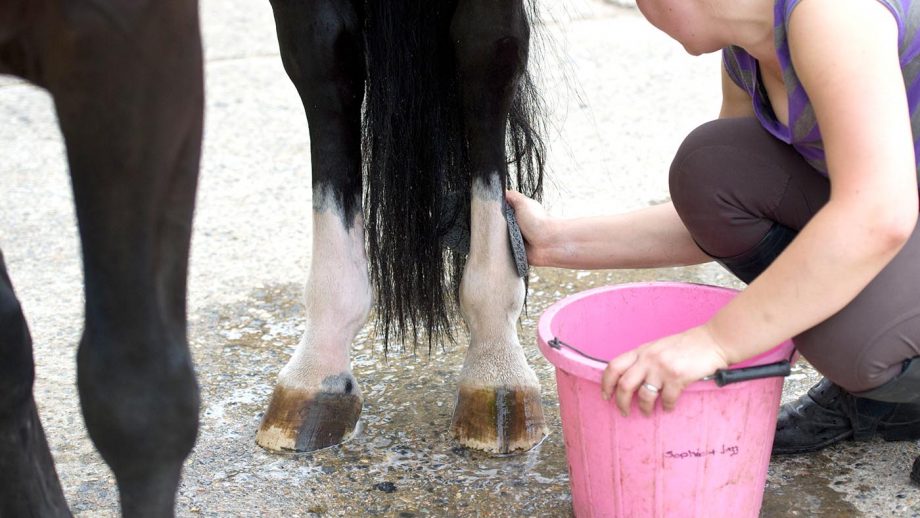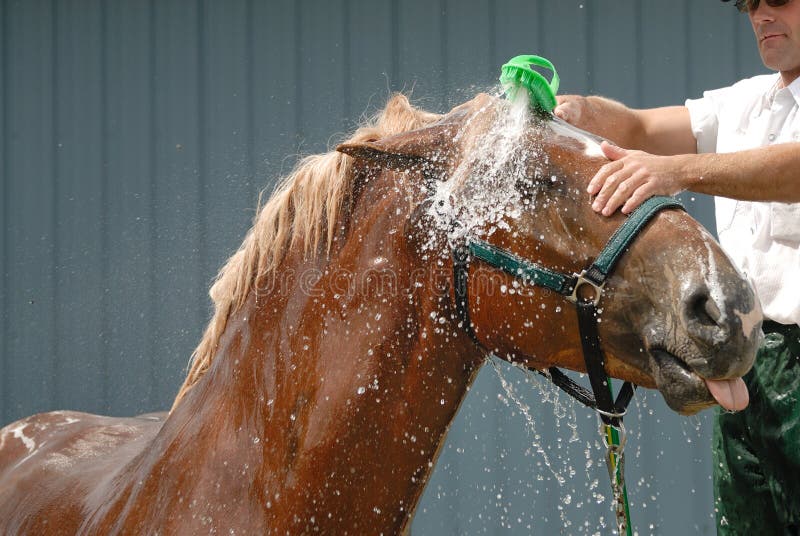Understanding the optimal hydration needs for your horse is critical. Knowing how much water per day should you give your horse is crucial to maintaining their health. Water is an essential nutrient, and its significance in an equine diet cannot be underestimated. Horses, like all animals, have specific water requirements that are influenced by several variables. In this article, we will delve into these factors to equip you with valuable insights into your horse’s hydration needs.

Importance of Proper Hydration in Horses
Proper hydration is vital for a horse’s overall health and well-being. Water constitutes approximately 60-70% of a horse’s body weight and plays a fundamental role in various bodily functions. From regulating temperature to aiding in digestion, water is necessary for your horse’s bodily functions.
Factors Influencing Water Intake
Climate and Temperature
The weather conditions significantly affect how much water your horse needs. During warmer months or in hot climates, horses need more water to maintain body temperature.
Diet and Hay Consumption
Your horse’s diet is another key factor that impacts water needs. Horses consuming dry feeds, such as grains or hay, generally require more water compared to those grazing on fresh grass.
Activity Level
Active horses, such as those regularly exercised or engaged in sports, will naturally require more water than sedentary ones. Regular activity increases water loss through perspiration.
Average Daily Water Requirement for Horses
On average, a horse requires about 5 to 10 gallons of water per day. However, individual needs can vary based on the influencing factors described above.
How to Ensure Your Horse is Well Hydrated
Regular Water Provision
Always ensure that your horse has access to fresh and clean water around the clock. This is crucial, especially during hot weather or after vigorous exercise. Consider using automatic waterers to provide a consistent supply.
Check for Signs of Dehydration
Recognizing dehydration signs early can prevent severe health issues. Some visible signs include dry gums, constipation, lethargy, and elevated heart rate. Conduct regular skin pinch or capillary refill tests to check hydration levels.
Environmental and Seasonal Considerations
Winter Months
During winter, hydration is equally important as horses may consume snow instead of drinking adequate water. Ensure water sources are not frozen and encourage your horse to drink.
Summer Precautions
In summer, several factors increase water demands. Ensure shaded areas for rest, and always provide fresh water. Using electrolytes might help replenish the salts lost through sweating.
For additional equine care tips during different seasons, consider visiting this article.
Implementing Hydration Strategies
Understand that a one-size-fits-all strategy does not work for all horses. Develop a customized hydration plan tailored to fit the specific needs of your horse depending on its diet, environment, and activity level.
Conclusion
Being aware of how much water per day should you give your horse ensures they remain healthy and active. Regular monitoring, understanding their specific needs, and making necessary adjustments will help in maintaining proper hydration levels.

FAQ Section
How can I tell if my horse is dehydrated?
Check for dry gums, skin elasticity, and overall lethargy. You can also perform a skin pinch test.
Can a lack of sufficient water affect a horse’s health?
Yes, insufficient water intake can lead to severe issues like colic, dehydration, and urinary tract problems.
Is the same water amount required throughout the year?
No, it varies. Water needs often increase during summer and might decrease in winter, yet constant monitoring is necessary all year round.
For **groundwork exercises** that can enhance your bond with your horse, follow this link.








